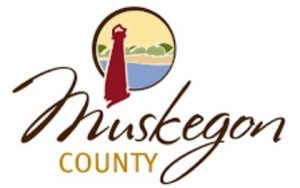After earlier this year receiving the necessary federal approvals for its planned Muskegon County, Michigan casino, the Little River Band of Ottawa Indians’ $180 million Lakeshore Casino and Resort project may be delayed even further due to opposition from elected officials in the greater Detroit region.
According to MLive, last week, resolutions opposing “any off-reservation gaming effort” in Michigan were passed by the Wayne County Board of Commissioners and the Detroit City Council. The statements reportedly made mention of the casino proposed for a former 5/8 mile horse racing track located in Fruitport Township, as well as the Sault Ste. Marie Tribe of Chippewa Indians‘ effort involving property in Wayne County that dates back to 2012.
Needed approvals:
The harness racing track formerly known as Great Lakes Downs was purchased by the federally recognized tribe in July 2008 with the primary goal to build a Class III casino. After a five-year lull, a decision by then Gov. Rick Snyder was made in October 2013, to allow a federal review and permitting process to take place.

Because it is “off-reservation,” the proposed tribal casino requires state and federal approval. Furthermore, because it would be the Little River Band of Ottawa Indians’ second casino, its state gaming compact will also need to be amended. So while the project was approved by the U.S. Bureau of Indian Affairs (BIA) in March, the Manistee and Mason counties-based tribe still needs to go through Gov. Gretchen Whitmer’s office before construction can begin.
Casino plans:
Located approximately 90 miles south of the tribe’s established casino situated on its tribal land north of Manistee, the off-reservation casino will reportedly include a 220-key hotel, along with 69,000 sq ft of gaming space with 1,700 slot machines and 35 table games. According to the source, the tribe says its pursual of the off-reservation casino is due to the fact that many of its members reside in the Muskegon County region.
Stated concerns:
In its resolution last week, the Detroit City Council reportedly said off-reservation gaming could “pose a threat” to the revenue generated from its trio of privately-owned casinos, including MGM Resorts International‘s (MGM:NYSE) MGM Grand Detroit, MotorCity Casino Hotel, and the Penn National Gaming operated Greektown Casino.
Mirroring that concern, Wayne County Commissioner Alisha Bell reportedly said in a news release the 15-district board is concerned about a “possible influx of casino gaming operations,” as reported by MLive.
According to the 2020 Michigan Gaming Control Board (MGCB) Annual Report (pdf), the three Detroit casinos’ adjusted gross receipts for the year totaled $620,385,028 while the combined 8.1 percent state wagering taxes paid by the three licensees and deposited in the State School Aid Fund totaled $50,251,187. And the combined City of Detroit Wagering Taxes paid by the trio totaled $73,825,818, which at the time represented a significant percentage of the city’s budget, according to the 2020 report.
Tribal Ogema Larry Romanelli said it feels “a little odd” for the project to have opposition from across the state. According to the news agency, he said…

“It feels like an imposition into us doing business. I would not think about going to Detroit and mandate how they do their business.”
Tribal opposition:
Supporting the opposition from the Detriot-area officials are the Saginaw Chippewa Indian Tribe, which owns and operates the Saganing Eagles Landing Casino and Soaring Eagle Casino Resort in Standish and Mount Pleasant respectively, along with the Nottawaseppi Huron Band of the Potawatomi and Gun Lake tribes, which own casinos in Battle Creek and Wayland Township. Each of the three tribal casinos is within a two-hour drive of Fruitport Township.
A spokesperson for the three tribes, James Nye reportedly said the resolutions show “bipartisan opposition” to off-reservation gaming and also believes that the dissenting resolutions from what is the “largest city in the state of Michigan” could impact Governor Whitmer’s decision making.
However, Romanelli reportedly said he has “faith and trust” in the governor as she continues to evaluate the proposal. Adding that…
“This does have bipartisan support, strong bipartisan support. So, I just think the stars have aligned properly.”
The proposed tribal casino hit a bit of a road bump when on Feb. 25, 2021, the Michigan House of Representatives approved a resolution, which was introduced by state Rep. Roger Hauck, R-Union Township, opposing the “unchecked proliferation of off-reservation gaming” that isn’t within gaming compacts approved by the tribes, the State of Michigan, and the U.S. Department of the Interior.
Waiting game:
In December, the Lakeshore Casino and Resort project received a favorable decision and a two-part determination (pdf) from the BIA, a decision that Governor Whitmer will have to concur with as required by the Indian Gaming Regulatory Act (IGRA).
According to reports, the $180 million development is estimated by the tribe to create 3,000 new jobs, including 1,500 full-time positions and 1,500 constructions and ancillary jobs, for the Muskegon community.



